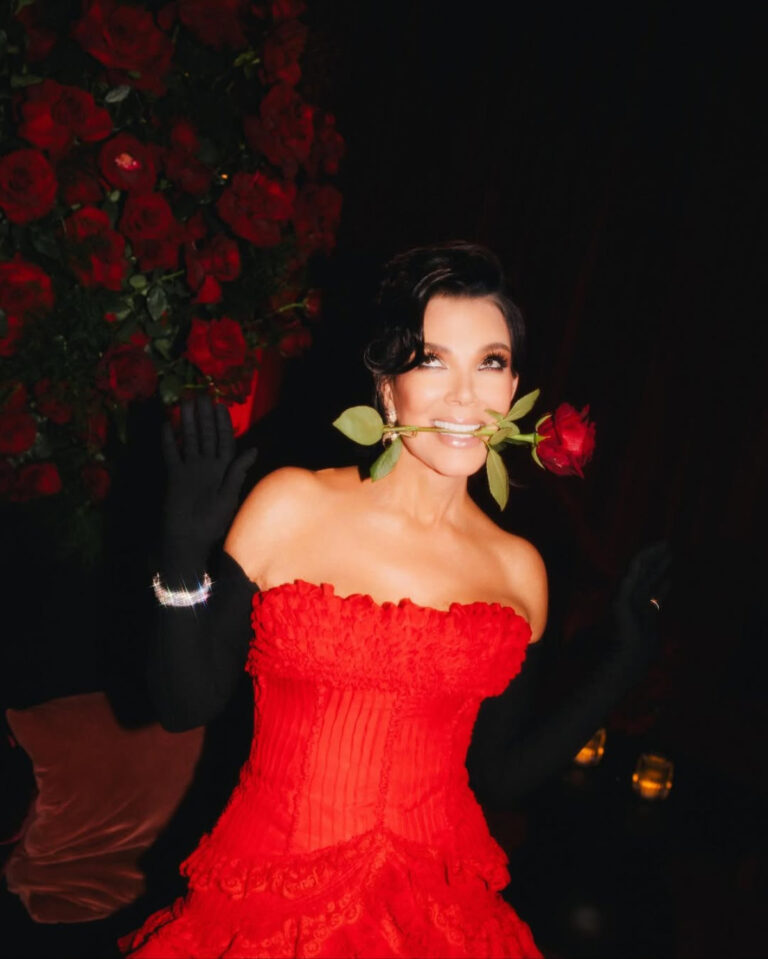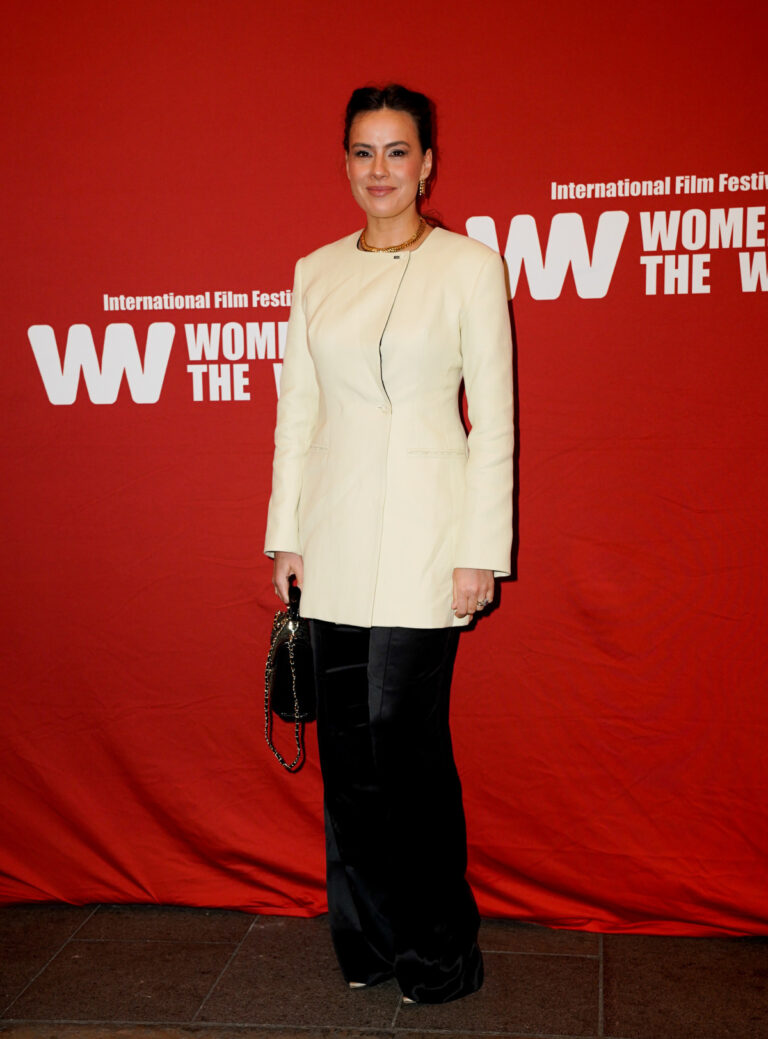In an interview for ELLE
Serhiy Kulybyshev is a Ukrainian director, screenwriter, and playwright who has written over 400 scripts! This year, his play “Polyandry” about a woman to whom a wounded husband returns from the front is being directed by David Petrosyan. At the same time, Serhiy acted as showrunner and director of the first original series for Sweet TV — “Hiding the Former.”
In the last days of summer, we met with Serhiy to discuss his fall premieres, debate humor on difficult topics, and find out whether theater is truly thriving and what problems currently exist in the modern drama industry.
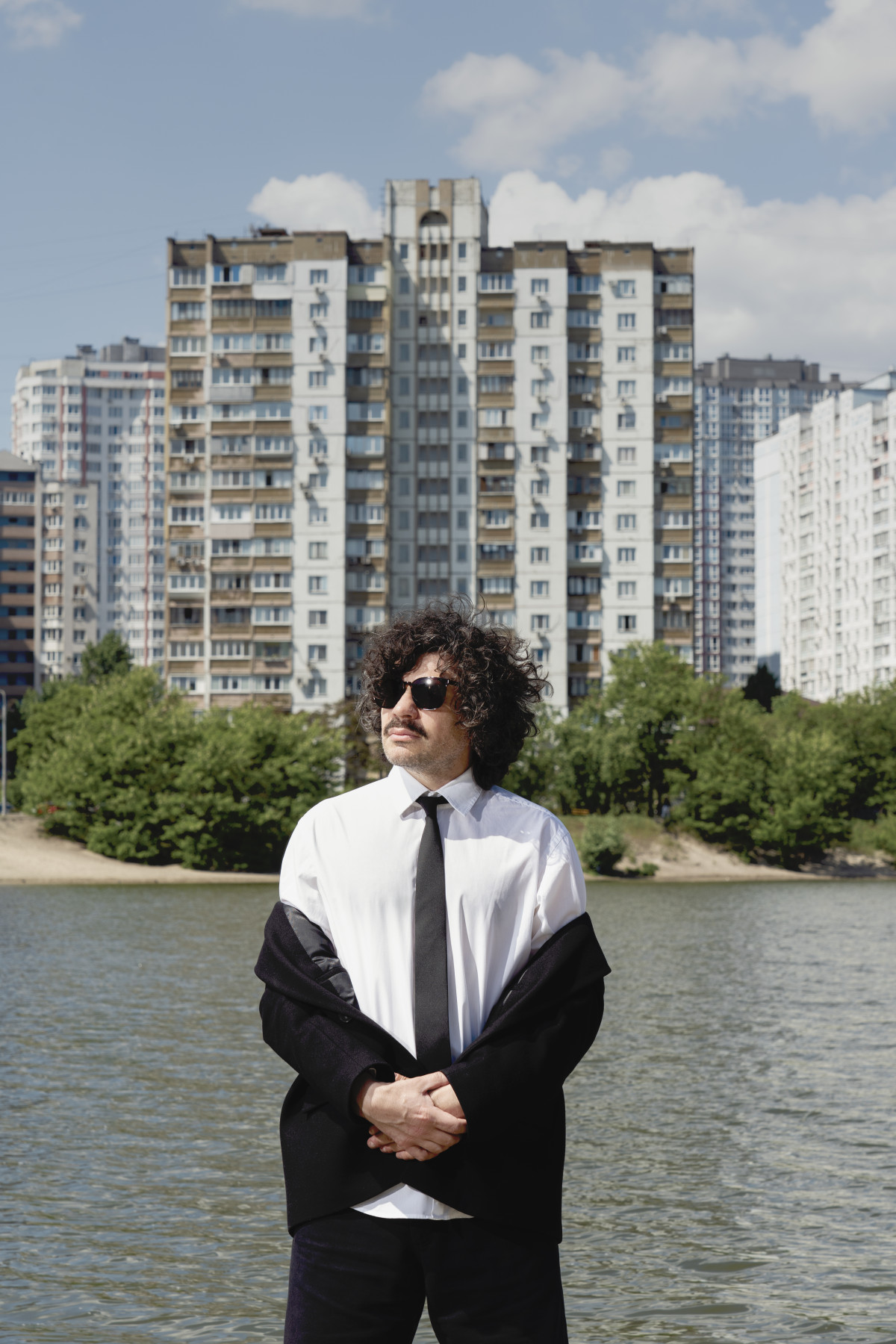
The play “Polyandry”, David Petrosyan and the Entreprises
How did you decide to write the play “Polyandry”?
In November 2023, I staged “The Magnificent Century. Fun” in Chernivtsi, my directorial debut. After the premiere, I immediately had an idea, although there was no trigger. I just thought: “I staged the play, what should I do now?” And I found the answer in this idea.
What was the original idea behind the play?
No, no, no. I got the pattern: a woman is waiting for her husband after being injured and realizes that he will return changed, but she doesn't know how. Then two people arrive, who are her husbands.
Everything else appeared in the process. This is the usual work of a playwright – to imagine yourself in the shoes of each character, to understand what he really wants and how he will behave in the unexpected situation that you have created. I would say that from now on the characters lead me, and I only write down. I imagined myself as someone who is waiting for a loved one, and they return completely different. I imagined myself as someone who wants to return to their usual “self”, but cannot. To do this, I talked a lot with veterans with injuries and disabilities and with their wives. Because whatever the playwright's imagination may be, real life is the basis. My story is metaphorical, and there are no literal analogues to it in world cinema or theater. But it is about what thousands of our families are facing and will continue to face.
Do you always work like this – the first flash of an idea comes and you unwind it like a ball?
I encountered this situation when I was developing my short film “Sun”. I came up with the idea that a boy would leave his father, and the father would let him go. The question then arose: how to develop the story in such a way as to understand why he would let him go? Because that's interesting. Then you follow the hero: what does the father feel when his son leaves.
“Polyandry” also has this: how does a woman feel when her husband is two different men? How to live with this?
Maybe there was a trigger for this story after all?
The premiere of “The Magnificent Century. Merry” took place at the Golden Applause theater festival in Chernivtsi. Various performances were shown there – for example, “The Konotop Witch” by Ivan Uryvsky or the Shevchenko Kharkiv Theater's “My Wife's Husband” production. The halls were full for both productions. At the second one, people were so happy that they were stamping their feet in delight. Then I thought about the phenomenon of comedies: why do theater critics consider them a “low genre,” while viewers, on the contrary, enjoy watching stories about a man who returns from a business trip and finds his lover in a closet? I thought: what if we combine this supposedly “light” genre with topics that really concern me? And this work captivated me.
I wanted people to react to modern dramaturgy in this way — to jump over this chasm and deconstruct the genre of the enterprise on a different level of meanings and raised issues. Most likely, my idea was born here subconsciously. Because my characters are also hiding in the closet. (Laughs.)
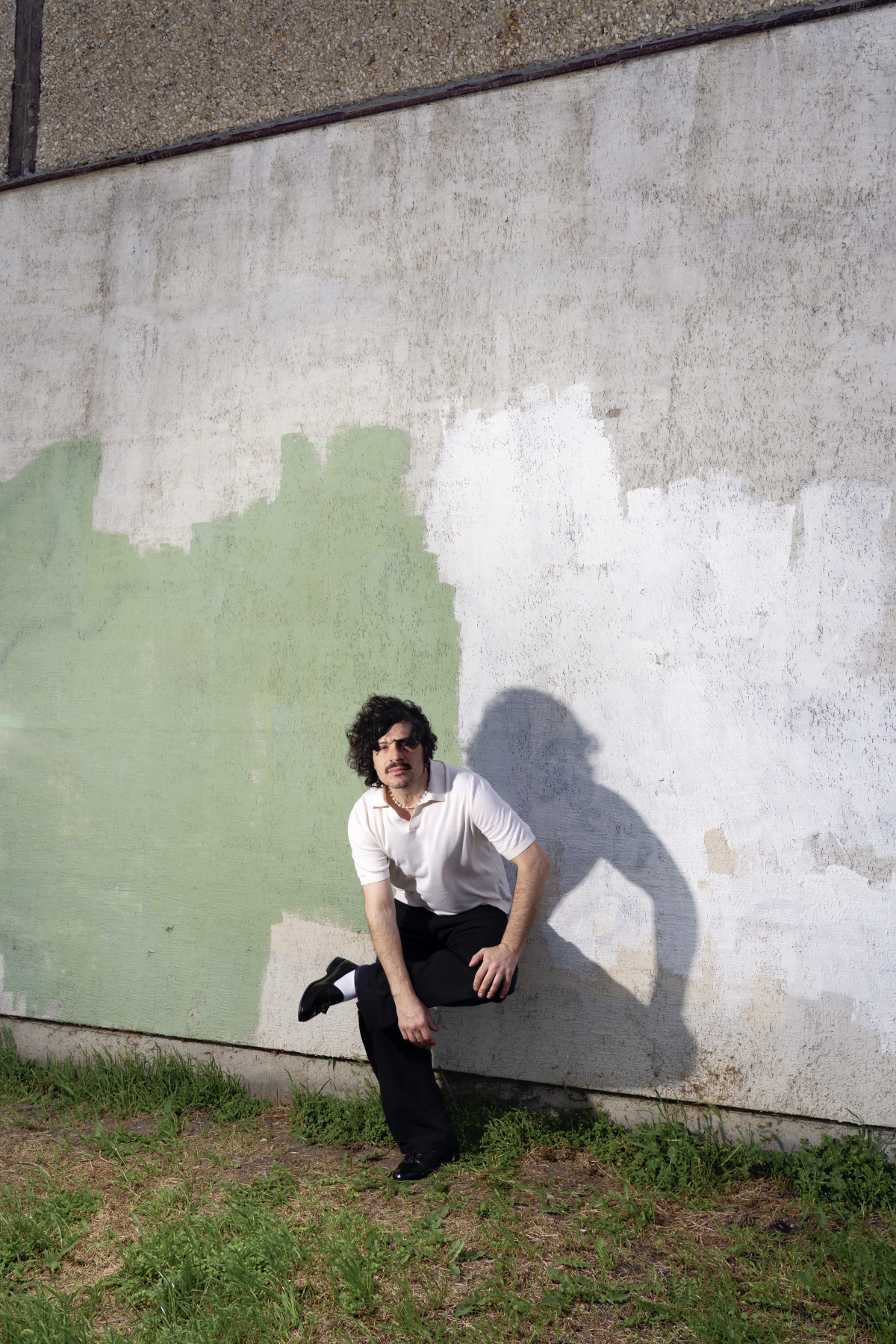
The issues you raise in your plays are about walking the razor's edge in today's society: the topic of veterans in “Polyandry”, the topic of queer people and their coming out in “The Magnificent…”, your upcoming series “Hiding the Ex” for Sweet TV will tell the story of civilian men who hide their military ex. Is this a conscious choice of painful and important talking points?
I immerse people who are not ready to talk about, for example, accepting another person's orientation. At first, they find it funny, because they think it's a comedy. And then they fall into the depths of an existential crisis. I liked it so much in the first play and performance I did that I wanted to make the second one exactly like that. And for me, “Polyandry” is a continuation of this path. They even exist in the same universe. In “Polyandry” the hero of “The Magnificent Century” is mentioned, and the action takes place in Zhytomyr, where one of the heroes of “The Magnificent Century” came from.
I admire McDonagh, so this is my homage to him, because all his plays take place in the same universe. Sometimes the hero of one play recalls the hero of another. And I wanted to do that too. Now I have a third play in mind — it is also in my universe.
Weren't you afraid that your deconstruction of the enterprise would be perceived as a comedy, and not as a rethinking of the genre?
I was afraid. Especially how it would be perceived by modern Ukrainian playwrights and theaters, who, like me, have a condescending attitude towards the ante-parte genre. And I was surprised when David Petrosyan wrote that he had praised the play.
“The Magnificent Century. Merry” was staged by Olekso Gladushevsky at the Golden Gate Theater in Kyiv after your production in Chernivtsi. David Petrosyan is currently working on the production of “Polyandria.” How do you let your texts go into other hands? And do you think this is the right, best, most convenient way for you as a playwright?
It's easy for me because of my directing experience. When Olekso called me, it was a delight. I realized that I was able to see my text the way I saw it on stage, and now I will see it in a completely different way. And when I went to the premiere, my personal gestalt was closed. If I hadn't managed to stage my own, I might have felt jealous.
With “Polyandria” it's also simple. I respect many Ukrainian theater directors, but David Petrosyan stole my heart when I saw “The Trial.”
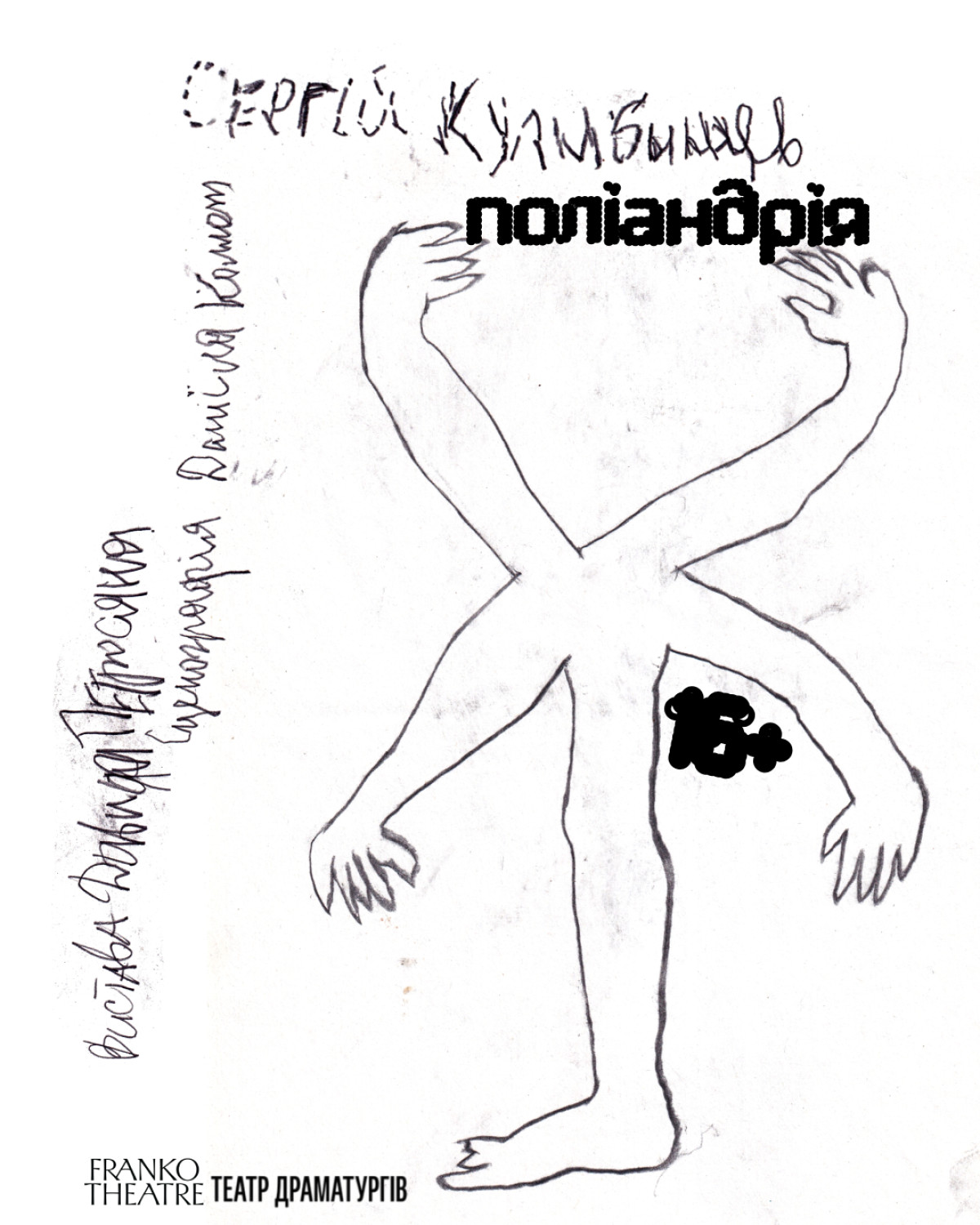
Humor that breaks down walls, but does Serhiy Kulybyshev write about himself?
Are you not afraid to joke around psychological or physical trauma? “Polyandry” is a comedy, “Hiding the Ex” is a tragicomedy. Is this part of your identity, your humor? And do you think that this is possible, this is how it should be?
When I wrote Polyandry, I talked to disabled veterans, conducted interviews to gather material, and spoke to a military widow. I explained to them what it was for, and they gave permission. The play doesn't contain what they told me. There's only the tone in which they talked about it. I kept it. They also read the finished play because I wanted to get permission from the focus group.
I can't guarantee that my play won't trigger anyone. That's impossible. But I do it with respect and reverence. Not in my head, but out loud to those who have lost and those who have been traumatized.
I believe that good humor is when you make fun of someone who is stronger, someone who is in power. Bad humor is when you make fun of someone who is weak or someone who cannot fight back. It's not really funny.
For example, Taras Shevchenko is a sacred person in Ukrainian literature. Or Lesya Ukrainka. How can you laugh at them? These are great people – you can. You just need to find a way that won't offend anyone, but will show the situation you need.
Real humor shows problems. For example, the problem that people look away from people with disabilities. I felt this as a child, because in my yard there was a man without two limbs. And we, the children, tried not to look at him. I also feel awkwardness now. But it should not be avoided, it is better to recognize it and fight it. We should build a new habit, not a wall. When you can't joke about something, the wall grows. Humor for me is not a way to laugh at a problem. It is something that opens doors and destroys walls.
There is an opinion that the author speaks about himself in the characters and his own works. But in your works, at first it seems that this is not the case. “The Magnificent Century. Merry” – the head of the village admits that he is gay. “Sun” – about fatherhood, and “Polyandry” – about a woman who meets her husband after being wounded at the front. However, you are a heterosexual man and do not have children.
And I'm not a woman, that's right!
If these characters and stories aren't about you, how do you feel that this is your topic that you can talk about?
Each of these situations is familiar to me, otherwise I wouldn't have written about it. But it's familiar metaphorically. “Sunshine” is about letting go of someone you love because you realize that this person is unhappy with you. As someone who has lived and seen quite a lot, I know what it's like to let go when you don't want to let go.
Regarding “Polyandry” – I was interested in writing about a female heroine. It's a challenge. In previous projects – for example, the TV series “Hromada” – I was always told that I write women's lines well, that I feel them.
When I first came up with the idea of men returning from the front, I thought they would be the main characters. But I stopped myself. I don't know what it's like to return from the front a changed person. You won't really know that even after an interview. It would be fake. But I know what it's like to wait for close friends from the front, to worry about them. And I know when they come back wounded. So my emphasis is where I know what it's like, and I don't want to shift the emphasis of the play to what it's like to be a disabled veteran who returns from war to his family.
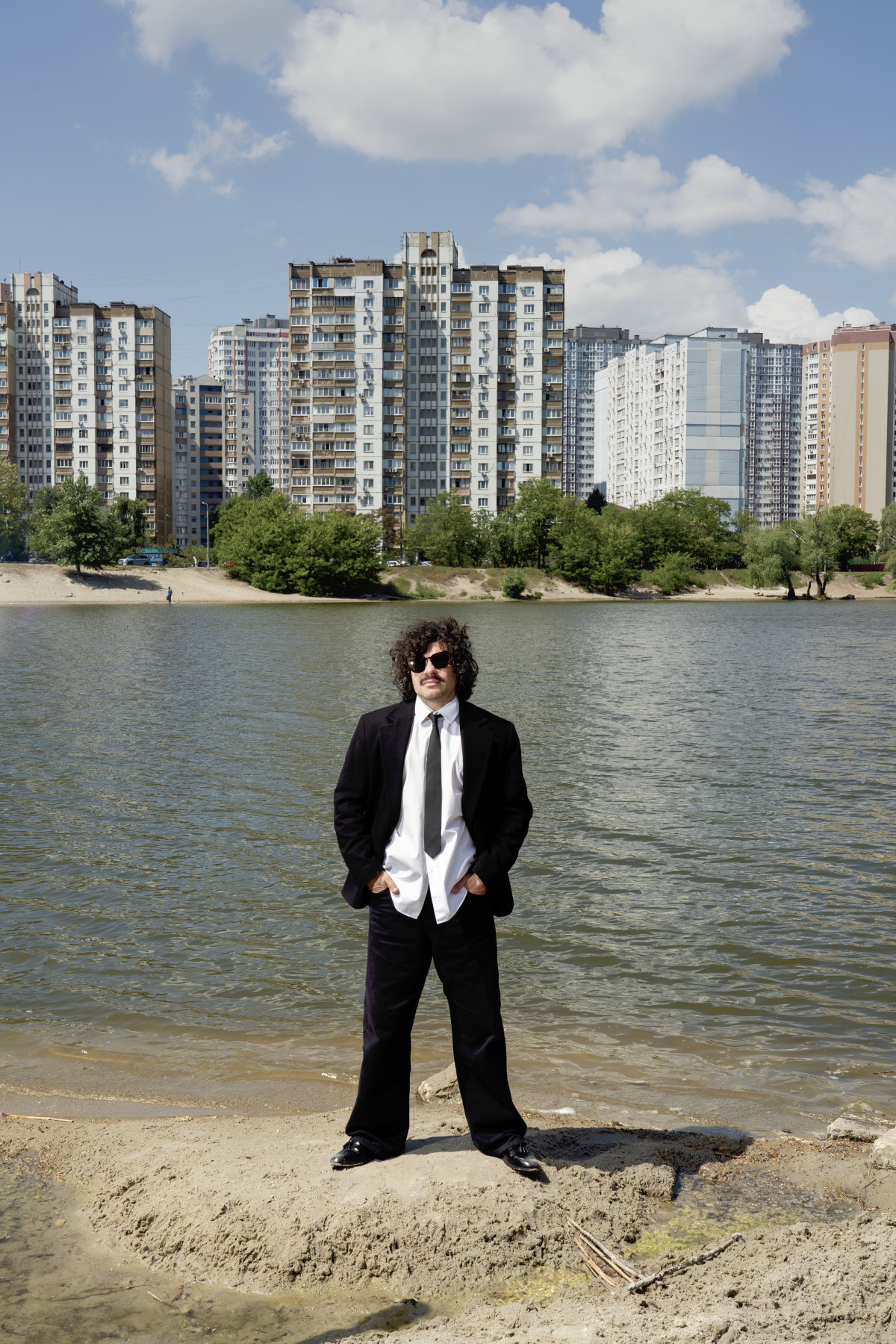
The theater industry and whether there really is a boom that everyone is talking about
You mentioned many performances you saw. You attend readings and are actively involved in the theatrical process. In your opinion, what is happening with modern Ukrainian dramaturgy now?
I don't consider myself an expert to give a professional assessment of Ukrainian theater. I only got into the theater environment in 2023, when I first thought about it after writing my first play. I feel like a beginner — and I probably will remain so, because it takes about ten years to become one here.
But I already know that there were outbreaks of successful Ukrainian theater after the Revolution of Dignity. Then interesting theaters, projects, and productions appeared. Now a new wave has begun, provoked by a full-scale invasion. Some criticize hyped productions, but there are also those who admire productions in theaters whose names are not so well-known. I think that the current processes in theater are natural and timely. Ukrainian theater is developing and trying to make up for what was lost.
Lost due to Russian influence?
For two reasons. Of course, because we were squeezed by the Russian theater, and everyone was looking at what was happening in Moscow. The second is underfunding. And all this, of course, made the theater develop at a pace that did not correspond to the intellectual and taste level of Ukrainian artists.
Now they talk about a theater boom, but less about crisis points in theater. In cinema, on the contrary, we talk about problems more than victories, because statistically there are more problems now. Doesn't this hype and boom that is attributed to theater prevent it from growing?
We don’t know how long this will last to judge how it will affect the industry globally. One of the crises that is being talked about is the scandal with Andriy Bilous. Undoubtedly, this is a crisis of the Ukrainian theater. And in general, the “Soviet” system of training in theater universities is also a crisis. It all smells too much of the Middle Ages, which is then reflected in the work of theaters, especially in the regions.
I understand that it is very difficult to shake this system from its dead place. But I find it strange that in our country we have “Diya”, digitalization, a bunch of different services, cool banking, and what is happening in the theater is still a “Soviet” system.
We also talked to you once that most theaters are not ready for productions of modern drama. And what is called hype only applies to classics for now.
I believe that Ukrainian theater lacks modern drama. Not only Ukrainian. And indeed, there are too many classics. I see wonderful changes in the theater on the Left Bank. They organize a competition for theater directors “Customs. New Direction”, where the prize is a production in their theater. Anyone can join, even from the street. They do this in order to discover new names in directing. And it's really cool.
Or, for example, the drama competition “July Honey”, as a result of which a book of plays is published. Not only from this competition, but from various Ukrainian awards of the year. I notice that water sharpens stone. It will not move and bear fruit very soon, because state theaters still do not stage these plays that are sent to them in such a book. But we will work on it.
Name three underrated Ukrainian playwrights.
We don't have a single star of Ukrainian drama, except perhaps Natalka Vorozhbyt. And there are many more really cool playwrights. I can easily name 10. If you want me to name three, let them be Lena Lyagushonkova, Oleg Mikhailov, and Lena Kudayeva.
Author: Elizaveta Sushko


